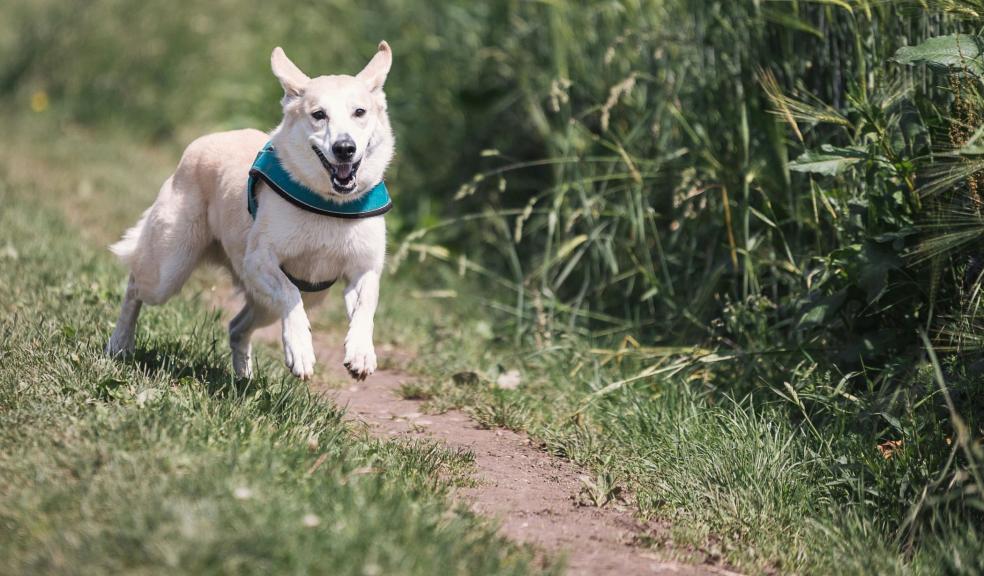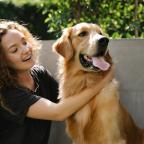
Dog behaviour expert reveals six top tips to ace recall training
Dog training and behaviour expert Nick Jones MA has revealed how pet owners can ace the recall, enabling owners to let their dogs off the lead safely.
Nick has shared six tips to help owners teach their dogs how to recall and to give the owners the confidence they need to work towards letting their dogs off the lead.
With over two thousand dog behaviour cases behind him and over 20 years of experience, Nick recently partnered with ACME Whistles to educate dog owners on training their dogs and tackling any behaviour issues.
Freedom of Information figures from Police in the UK reported a 34 percent rise in incidents of out-of-control dogs causing injury between 2018 and 2022.
Ensuring a dog has a good recall is one of the most important obedience exercises owners can teach, keeping them and others safe from potentially dangerous situations.
Teaching a dog to recall well takes time and lots of practice, but dogs should be able to master a reliable recall within three to six months depending on age and existing training levels.
Tips to ace the recall training include introducing appropriate rewards so that they associate returning to the owner with a positive outcome and training the dog from an early age to come to the call of its owner.
Nick said: "While dogs enjoy a run off lead, I generally advise owners to keep them on the lead until they have mastered the recall.
"Owners should also use a whistle and valuable awards to ensure the dog has a reliable recall, especially with the rise in UK dog-related incidents involving dogs not fully under control.
"Owners and dogs should be able to demonstrate basic commands and a good level of basic obedience before it is allowed to be off lead and loose.
"This helps to keep the dog and others around them safe and under control at all times."
"With consistency and practice, dogs soon get used to the recall basics and owners can let them off the lead without anxiety in due course."
"When training, there is a range of best practices, including using a whistle for a consistent signal and pitch to cut through noisy environments, to avoid punitive training methods, using a long lead to maintain control, whilst using rewards that you know your dog is motivated for."
Six hacks to ace the recall training:
1. Reward:
Coming back to the owners should be a positive experience for the dog, so they must be rewarded with high-value treats, praise, or toys for a short spell whenever they correctly respond. This will ensure they associate the recall with positive outcomes and that the owner reinforces the behaviour positively and consistently.
2. Train young:
Ideally, owners should start recall training when the dog is a puppy because it is easier to establish good habits early on and helps the pup develop strong and reliable skills throughout their life. However, a dog of any age can be guided into a better recall with time and patience, so don't let age put you off.
3. Use a whistle:
Using a dog whistle for dog recall provides a consistent, emotion-free signal that carries further than your voice and cuts through distractions, especially in noisy environments or when the dog is at a distance. Owners should make sure the dog associates the sound of the whistle with rewards for the best outcome. Finding your dog's motivators can help you reward your dog's return effectively.
4. Use a long lead
While training your dog to recall, use a long lead (30-50 ft for most) in open spaces to give it freedom and the feeling of being off the short lead. Not only will this let the owner maintain control, but it is also the safest and most effective way to practice recall training before letting your dog off the lead completely, whilst trust and confidence is being built between the dog and owner.
5. Consistency
Consistency with practice and between the dog's main handlers will help the dog learn more quickly and understand the commands faster, building reliable habits and stopping unwanted behaviours in the process.
6. Avoid punishments
Avoid punishing your dog during recall training as it creates negative associations with returning to the owner and the exercise, so they should not be punished if they take a little longer to return or hesitate, simply use the line to calmly enforce your recalling efforts as you bring the dog back to you. Reward every recall to reinforce the idea that returning is a safe and prudent choice every time.







